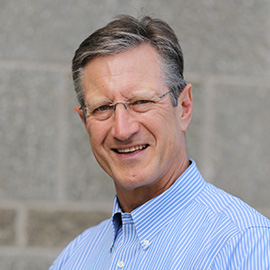6.1 Great Teams: Core Identity Essentials

What is it that enables highly competent individuals to integrate into great teams and thrive naturally? It is only with the support of others that our competency can be utilized as a part of something bigger than ourselves. A set of individuals create a team that shares a Core Identity. We will share a few of the fundamental requirements for great teams to thrive.
In the simplest of terms, a great team has a Core Identity built upon two essential Guiding Principles: Deep Caring and Mutual Trust in service of others. Organizations may select the words that best represent how they like to be treated and like to treat others, but they must relate to and include these two principles. We have experienced working with organizations that failed to have one or both, and despite our efforts, they are no longer in existence.
Guiding Principle Requirements: Caring and Trust
Deep Caring
Love may be the basis of this Guiding Principle, but may not be politically correct in your business world. Deep Caring surfaces our need to be cared about, to be respected, to give and receive compassion and empathy. The “deep caring” concept lives around a feeling of loving and being loved in context of what provides a secure and safe environment.
Stories of Deep Caring from our Clients
These are examples from clients of what their organization has looked like at its best when deep caring was exemplified. They touch our hearts, and we do not forget when we have witnessed the Guiding Principle of Deep Caring in action under pressure.
- One of our team members was diagnosed with cancer last year. She chose to follow a non-traditional method. We have held fundraisers to help her pay for everything insurance didn’t cover.
- (From a third-generation employee) My grandmother had a baby, and when Grandpa went to pay the bill, he found that the president of our company had already paid the bill.
- Our owner took time for a customer who could barely come up with the deposit for a $10K purchase, while a much larger customer waited for him. All customers are important and that is how we treat everyone.
- We sponsor Christmas for an underprivileged school. T-shirts, breakfast and lunch, gifts, and for some, family gifts; 40 team members participated. We end up feeling like the beneficiaries.
- I was young and stupid and got into trouble, and the company helped me get through the tough times. I would be in real trouble if it were not for the company.
Mutual Trust
Organizations can select other words that defines their journey that promote flow in organizations and relationships. Once again, we are seeking the sense of safety and security that words like Integrity, Honesty, and Responsibility also describe.
Stories of Deep Trust from our Clients
These stories of Trust instill a feeling you are in a safe place where your back is covered, even when you do make a mistake.
Our customers trust us, they want us to succeed, they give us competitor pricing. They do not do this with our competitors.
- The president’s open communication on what happened, and how we were going to overcome the challenges. It meant a great deal to many of us.
- A service company delivered a truck with wallet left in the cab. We immediately returned the wallet to the rental company, who then returned it to the owner.
- Our team started a trust-building meeting to communicate openly on the good, the bad, and the ugly among us. It is making us a stronger team.
- We sold a customer a flawed design that failed. We stepped up and fixed it, and continue to support each other today. They could have left us with a massive bill for the failure, but did not, because we made it right.
A Deeply Meaningful Purpose in Service of Others
These two Guiding Principles, when in service of a deeply meaningful Purpose that contributes to the benefit of others, attract the right team members, and produce sustainable success. The Purpose is not to be self-serving, rather focused on gaining the joy of being a part of a team that has made a difference. As Margaret Meade points out, it is a community’s shared commitment to a deeply meaningful purpose that makes significant accomplishments possible.
When you build your Foundation of Winning on that simple platform of a Deeply Meaningful Purpose for benefit others—with Guiding Principles of Deep Caring and Mutual Trust—you will be on your way to building a sustainably profitable organization.
Like all Guiding Principles, these two—Deep Caring and Mutual Trust—are how we like to be treated and how we like to treat others. They are not constituency-dependent: they must apply to all we connect with, all the time, especially when under pressure. It will be the stories of exemplification and violation that will more accurately define what is meant by the words. When under stress, team members will remember the stories of what we look like when at our best, not the words on the wall. In time, the words remind us of stories, and the stories become feelings that will guide actions for future decision making.
The Biological Impact of these Two Guiding Principles
Feelings we experience from being in an environment that is caring and where trust is felt have a biological base. The chemical serotonin is activated when we feel valued and proud, and when we look out for others. This trusting and caring environment inspires us to feel a responsibility to look out for each other, with no expectation of something in return. When we do this, others in turn look out for us, and it becomes a circular and reinforcing system that promotes a safe place to live and work.
Another hormone, oxytocin, is activated when we experience friendship, trust, and physical touch, and it reinforces positive relationships and trust. It can be activated through acts of kindness, including simple gestures that demonstrate deeper caring, with deep meaning.
An abundant mentality touches both Caring and Trust. A key component of the Foundation of Winning is a positive and abundant mentality. Oxytocin fosters the generosity found in those with abundant mindsets, and it can even be activated by witnessing acts of kindness. Think about your responsibility as a leader understanding the impact you have as others witness your actions. What acts are being witnessed by your team? Are they serotonin and/or oxytocin creating?
Studies have shown that serotonin can contribute to extending life. We live longer when we live and work in environments that feel safe, secure, and protected. As leaders, we need to own the responsibility for enhancing the lives of our team members, while creating an environment that attracts team members who desire to attain greatness for sustainably-profitable organizations.
Leadership Questions
- What does it mean to you as a leader to have an impact on the life of your team members?
- How clearly is trust found and exemplified in your organization?
- How clearly is caring lived and exemplified in your organization?
- Do you share stories that exemplify trust and/or caring in your organization?
This post is part of series drawn from Fritz Seyferth’s upcoming book on the Foundation of Greatness.







